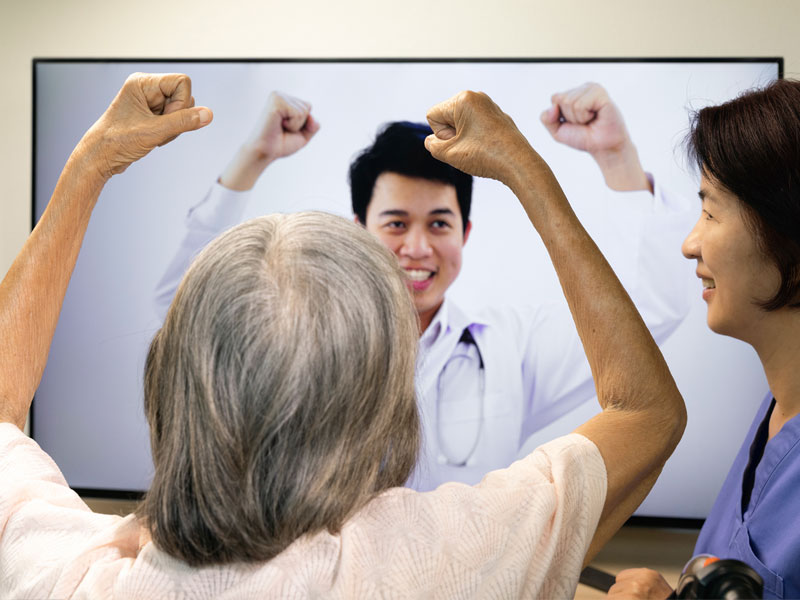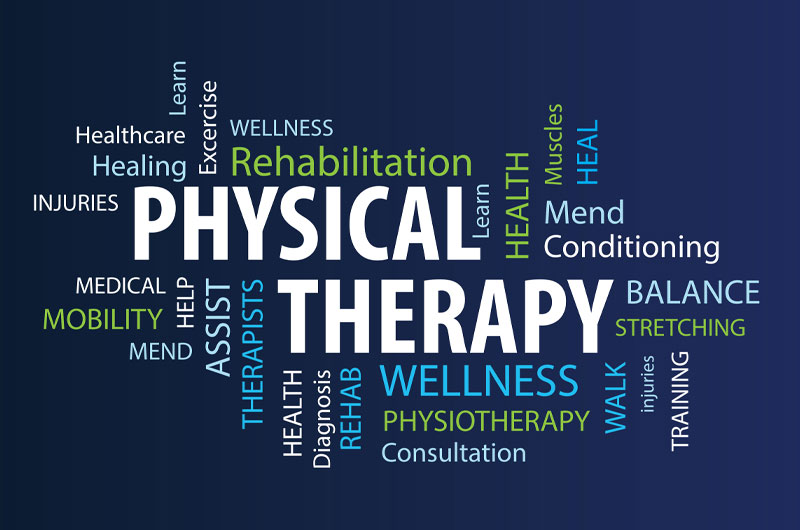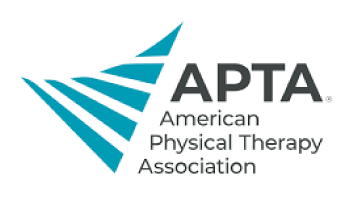Physical Therapy
Schedule
Our Licensed Physical Therapist will be ready to provide you solutions for all rehabilitation needs. Our highly skilled and experienced PT has helped various complicated medical conditions over the last 20 years and has a niche practice in Indiana. Our PT also has a national and international recognition, participates as a consultant in various Physical Therapy programs, working with the best. The patient can utilize our user-friendly registration process, enter the needed information, and select the available time slot for your consultation. Our virtual care is usually open 6:30 am to 11 pm every day with special emphasis on evening openings, weekends, and holidays when other traditional clinics are closed.
Easy Pay
Since we are currently a fee per service, concierge facility, we will not need your insurance information, but we gladly accept all forms of payments including credit cards, debit cards and health savings account cards. Please also have your 1 form of identification ready (either a driver’s license or similar document which confirms your identification). You will have the opportunity to prepay and block your appointment so you will get the consult with your PT at your time and convenience. However, you may not be charged with the visit until you complete your consultation. You can learn more about our fee schedule by clicking here.
Meet Your Physical Therapist
It’s that easy. Schedule Your Appointment. Indy TeleMedicine is Affordable and Easy to Pay. Once completed; you will meet with your physical therapist at your scheduled time. Your initial consultation may take 30 up to 60 minutes depending on your medical needs.

Make sure you are in a quiet environment and wear comfortable clothes as our Physical Therapist may start therapy immediately on the first consult. Physical Therapy may also provide appropriate referral to the best facilities of the patient needs immediate hands-on approach. In special circumstances the Physical Therapist may travel to your home and provide one of one therapy as per the need*(depending on the geography and the extent of care that’s needed).
Want to check our Physical Therapist Schedule, it’s easy, simply click on the button below and you will be able to view their current and future schedule.
Physical Therapy Consultations:
Here is a list of common physical therapy services however if you don’t see the condition that you need treatment for, please call us at 317-953-6699 or send us a message.

Orthopedics
Pain in spine
In most cases, back and neck pain may have many different causes, including any of the following: Overuse, strenuous activity, or improper use, such as repetitive or heavy lifting. Trauma, injury, or fractures.
Pain in Joints
Osteoarthritis, a common type of arthritis, happens over time when the cartilage, the protective cushion in between the bones, wears away. Adult Still’s disease, Ankylosysing spondylitis, Avascular necrosis (osteonecrosis), Bone cancer, Broken bone, Bursitis, Complex regional pain syndrome, Gonococcal arthritis, Gout,Hypothyroidisim, , Juvenile idiopathic arthritis,Leukemia, Lupus, Lyme disease, Osteoarthritis, Osteomyelitis, Paget’s disease of bone, Polymyalgia Rheumatica,Pseudogout, psoriatic arthritis, reactive arthritis, Rheumatoid arthritis,Rickets, Sarcoidosis, Septic arthritis, Sprains, tendinitis.
Sprains and Strains
A stretching or tearing of ligaments, the fibrous tissue that connects bones and joints. A person can any soft tissue over passing joints. Certain severe sprains may need Emergency visits while other can be managed by expert advise.
Chronic Pain Management
Pain is a signal in your nervous system that something may be wrong. It is an unpleasant feeling, such as a prick, tingle, sting, burn, or ache. Pain may be sharp or dull. It may come and go, or it may be constant. Types of pain Acute pain. Chronic pain. Neuropathic pain. Nociceptive pain. Radicular pain. There are hundreds of reasons for the cause of the pain and needs thorough assessment by a trained expert to identify and treat the source.
Chronic or persistent pain is pain that carries on for longer than 12 weeks despite medication or treatment. Most people get back to normal after pain following an injury or operation. But sometimes the pain carries on for longer or comes on without any history of an injury or operation.
Fibromyalgia
Fibromyalgia is a disorder characterized by widespread musculoskeletal pain accompanied by fatigue, sleep, memory and mood issues.
Women are more likely to develop fibromyalgia than are men. Many people who have fibromyalgia also have tension headaches, temporomandibular joint (TMJ) disorders, irritable bowel syndrome, anxiety and depression. While there is no cure for fibromyalgia, a variety of medications can help control symptoms. Exercise, relaxation and stress-reduction measures also may help.
Rheumatoid Arthritis
A chronic inflammatory disorder affecting many joints, including those in the hands and feet. In rheumatoid arthritis, the body’s immune system attacks its own tissue, including joints. In severe cases, it attacks internal organs.
Ehler Danlos Syndrome
A group of inherited disorders that mostly affect the skin, joints, and blood vessels.
Ehlers-Danlos syndrome affects connective tissue, primarily the skin, joints, and blood vessel walls.
Temporomandibular Joint Dysfunctions
Pain and compromised movement of the jaw joint and the surrounding muscles.
The temporomandibular joint or TMJ acts like a sliding hinge, connecting your jawbone to your skull. Dysfunction can lead to pain and discomfort.
Post Head and Neck Cancer Rehabilitation
Your follow-up care may include regular physical examinations, medical tests, or both. Cancer rehabilitation is a major part of follow-up care after head and neck cancer treatment. The goal of rehabilitation is to help people regain control over many aspects of their lives and remain as independent as possible.
Pre and Post Surgical Consultations
- Pre and Post surgical consultations
- The most typical consultations will include pre and post Total Knee
- Replacements( TKR ), Total Hip Replacements (THR), Rotator cuff repairs and Spinal Surgeries.
Neurology
Multiple Sclerosis
A disease in which the immune system eats away at the protective covering of nerves. In MS, resulting nerve damage disrupts communication between the brain and the body. Multiple sclerosis is a disease that impacts the brain, spinal cord and optic nerves, which make up the central nervous system and controls everything we do.
Stroke
A stroke, sometimes called a brain attack, occurs when something blocks blood supply to part of the brain or when a blood vessel in the brain bursts. In either case, parts of the brain become damaged or die. A stroke can cause lasting brain damage, long-term disability, or even death. The two main types of strokes are Ischemic stroke and Hemorrhagic stroke.
Symptoms of stroke include trouble walking, speaking, and understanding, as well as paralysis or numbness of the face, arm, or leg.
Paraplegia and Paraparesis
Paraplegia is a term used to describe the inability to voluntarily move the lower parts of the body. The areas of impaired mobility usually include the toes, feet, legs, and may or may not include the abdomen.
Concussions
A brain injury caused by a blow to the head or a violent shaking of the head and body.
This occurs from a mild blow to the head, either with or without loss of consciousness and can lead to temporary cognitive symptoms. Symptoms may include headache, confusion, lack of coordination, memory loss, nausea, vomiting, dizziness, ringing in the ears, sleepiness, and excessive fatigue.
Vertigo including Benign Paroxysmal Peripheral Vertigo(BPPV)
A sudden internal or external spinning sensation, often triggered by moving your head too quickly. There are two types; Peripheral Vertigo and Central Vertigo.
If your doctor tells you that you have peripheral vertigo you’ve got plenty of company. It’s the most common type of vertigo. Most cases are caused by a problem in the inner ear, which controls your balance. Common causes are BPPV, Vestibular Neuronitis, Ménière’s disease. BPPV is a condition that causes small crystals to get loose and start to float in the fluid of your inner ear. The movement of the crystals and the fluid leads you to feel dizzy. Sometimes an ear injury can lead to BPPV.
Central vertigo is caused by a disease or injury to the brain such as head injuries, illness and infection, multiple sclerosis, migraines, brain tumors, strokes, transient ischemic attacks (TIA).
Parkinson’s Disease
A neurodegenerative disorder that affects predominately the dopamine-producing (“dopaminergic”) neurons in a specific area of the brain called substantia nigra. Symptoms usually begin gradually and worsen over time. As the disease progresses, people may have difficulty walking and talking. They may also have mental and behavioral changes, sleep problems, depression, memory difficulties, and fatigue.
Facial Palsy and Bell’s Palsy
The term facial palsy generally refers to weakness of the facial muscles, mainly resulting from temporary or permanent damage to the facial nerve.
When a facial nerve is either non-functioning or missing, the muscles in the face do not receive the necessary signals in order to function properly. This results in paralysis of the affected part of the face, which can affect movement of the eye(s) and/or the mouth, as well as other areas. There are different degrees of facial paralysis: sometimes only the lower half of the face is affected, sometimes one whole side of the face is affected and in some cases both sides of the face are affected.
Bell’s palsy is a condition that causes sudden weakness in the muscles on one side of the face. In most cases, the weakness is temporary and significantly improves over weeks. Although most of the time the exact cause is not known, however viral infections have sometimes been associated with causing Bell’s palsy. The Viruses that have been linked to Bell’s palsy include viruses that cause Cold sores and genital herpes (herpes simplex), Chickenpox and shingles (herpes zoster), Infectious mononucleosis (Epstein-Barr), Cytomegalovirus infections, Respiratory illnesses (adenovirus), German measles (rubella), Mumps (mumps virus, Flu (influenza B), Hand-foot-and-mouth disease (coxsackievirus).
Book Your Appointment Today
What to Expect From Your Visit
The patient can utilize our user-friendly registration process, enter the needed information and select the available time slot for your consultation. Your initial consultations may last from 30-60 minutes depending on your health care needs and current situation. Since we are currently a fee per service, concierge facility, we will not need your insurance information, but we gladly accept all forms of payments including credit cards, debit cards and health savings account cards accessing our highly secured payment platform. Please also have your 1 form of identification ready (either a driver’s license or similar document which confirms your identification). You will have the opportunity to prepay and block your appointment so you will get the consult with your doctor at your time and convenience. However, you may not be charged with the visit until you complete your consultation. Make sure you are in a quiet environment and wear comfortable clothes for clear observation by health care professionals.

Book Your Appointment After Hours!
Indy TeleMedicine is open Monday through Sunday 5:00am - 11:00pm. Simply click on the button below to schedule your TeleMedicine Visit.

